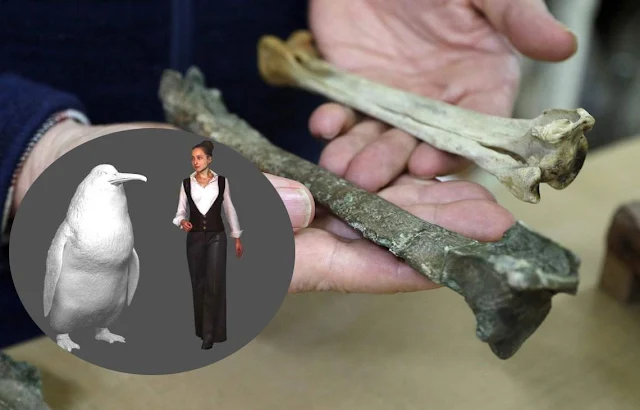New Zealand Scientists Discover Fossilized Bones of Human-sized 'Monster Penguin'
Scientists in New Zealand said Wednesday they've found fossilized bones from an extinct monster penguin that was about the size of an adult human and swam the oceans some 60 million years ago.
The fossilised remains of a huge penguin almost the size of an adult human have been found in New Zealand's South Island, scientists announced Wednesday.
The giant waddling sea bird stood 1.6 metres (63 inches) high and weighed 80 kilograms, about four times heavier and 40cm taller than the modern Emperor penguin, researchers said.
Named "crossvallia waiparensis", it hunted off New Zealand's coast in the Paleocene era, 66-56 million years ago.
Canterbury Museum researcher Vanesa De Pietri said it was the second giant penguin from the Paleocene era found in the area.
"It further reinforces our theory that penguins attained great size early in their evolution," she said.
Scientists have previously speculated that the mega-penguins eventually died out due to the emergence of other large marine predators such as seals and toothed whales.
New Zealand is believed to have been the site of many gigantic birds that later became extinct, including the world's largest parrot, a giant eagle and an emu-like bird called the moa. Scientists say the lack of predators allowed such birds to thrive.
The monster penguin's bones, from its legs and feet, were found by amateur enthusiast Leigh Love about 18 months ago in the Waipara River bed near the South Island city of Christchurch.
Just last week, Canterbury Museum announced the discovery of a prodigious parrot that was one metre tall and lived about 19 million years ago.
The above story is based on materials provided by Canterbury Museum.


%20(1).webp)






